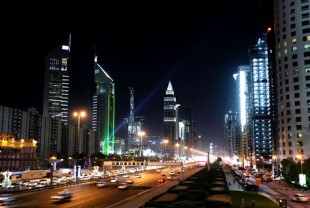

Hotel investors holding onto assets, study reveals

Hotel investors in the Middle East and North Africa are opting to hold onto their assets until the market improves, despite a slight rise in investor sentiment, according to the results of a global report by real estate consultants at Jones Lang LaSalle.
“Investor sentiment for short-term trading was negative for the Middle East and North Africa (MENA). Although expectations have improved since our last survey [in October 2011], many cities in the MENA are still suffering from the effects of the social and political uprisings in 2011,” according to the report.
Short-term expectations were lowest in Cairo as the political turmoil which led to the downfall of former president Hosni Mubarak continued to dent investor confidence.
While Abu Dhabi, Doha, Jeddah and Riyadh were also in the red in the short-term, Dubai was bucking the trend.
“On a more positive note, investors are confident that trading in Dubai will continue to improve in the short and medium term. The city has seen a significant growth in tourism arrivals and hotels reported strong performance results in 2011 and for the first quarter of 2012,” said Gabriel Matar, head of Middle East and Africa at Jones Lang LaSalle Hotels.
As a result of weariness among MENA investors, many owners and assets holders are opting to retain their assets until the market improves.
“Hold sentiment remained in second place and was high for MENA (41.4 percent), including cities such as Doha (75 percent), Abu Dhabi (62.5 percent) and Dubai (61.5 percent). Some of these markets remain fragile and investors are encouraged to hold their assets,” the report found.
Overall, the Saudi city of Madina was named the best performing city in the Middle East for hotel investment, according to the results of a new study compiled by accountancy firm Ernst & Young published in May.
Madina had the highest growth in average room rate in the first quarter of 2012, increasing 14.9 percent to US$170, while occupancy was also up 15 percent to an average of 72 percent in the same period.
"Madina’s dynamics in terms of hotel ROI (return on investment) is entirely different to any other city in the world," said Basel Abu Alrub, managing partner of Dubai-based travel agent Utravel.